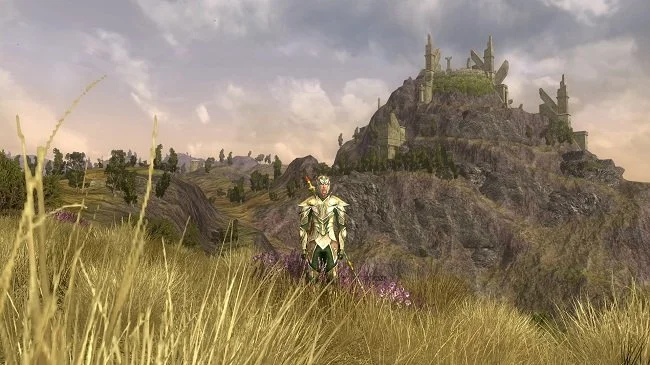LOTRO: The Codemasters Years
On 23rd February 2013 I was invited along with several other members of the LOTROCommunity (AKA the unofficial forums) to listen to an online talk from a former Codemasters employee. It was regarding their involvement with the European service of The Lord of the Rings Online between 2007 and 2011. Sincilbanks (their forum name at the time) was online customer services manager and during their tenure oversaw the daily administration and support of the game for non-US customers. The discussion provided a very interesting insight into the running of the MMO and drew attention to clear ideological and business differences between Codemasters and Turbine at the time. It also highlighted the significance of EU customers to Turbine and answered some of the questions that have persisted over the years regarding the disparity between the two services.
One of the first things discussed was the size of the EU service during the Codemasters years, which was comparable to that of the US during this period. Furthermore, over half of the EU service were German or German-speaking. LOTRO was a subscription game at the time and therefore this regional market had a sizeable value attached to it. As a result, Turbine wanted to buy the Online department of Codemasters in 2009. The deal did not go through as an agreement could not be reached upon that value. Some interesting details regarding the business setup also emerged. Codemasters Online was a small and autonomous department within the wider company, managing several licensed MMOs such as ArchLord, RF Online and LOTRO. Unlike other divisions of Codemasters, the subscription business model and the focus upon peak concurrent users meant that revenue was regular and more reliable. Traditional games finances are more associated with targeted and specific sales windows.
A point that came up quite quickly was the way the EU service under Codemasters would often hold in-game events, had a more flexible approach to account hacking and seemed to have a more proactive group of GMs. During the course of the discussion it became clear that Turbine had less GMs and that they were less knowledgeable regarding LOTRO. The servers had a great deal of functionality built into them which allowed for ad-hoc activities. Codemasters staff were very au fait with this but Turbine were constantly reticent to allow these features to be used. There was a fear of server crashes and a loss of service. The US customer services were very much focused on the cost per ticket ratio and anything that impacted upon that. US businesses are also more culturally risk averse in this area for legal reasons. Hence the North American service of LOTRO was very much bound by procedure. Codemasters Online had to push hard for any activity involving direct player interaction and even securing dedicated role play servers.
The subject of F2P and the infamous EU transition proved to be perhaps the most intriguing. The launch of the new business model for European players was delayed by nearly two months. As most people suspected at the time it came down to legal complications and the practicalities of localisation. Apparently a lot of the better aspects of the free to play business model were suggested by Codemasters because of their experience with other titles. Bind on acquire store items and 30 days support from the last purchase are examples of these. When Turbine successfully consolidated the EU service into their Global initiative, Codemasters Online naturally did their best to facilitate that process and offer viable support.
Concerns were legitimately raised with regard to Turbines ability to meet the needs of European customers. EU players are governed by different consumer laws and have a proactive mindset regarding their consumer rights. Multi language support was a key factor in the transition. EU customers have often been very outspoken regarding the quality of localisation which they feel has now dropped. It should also be noted that there are cultural considerations when dealing with non-North American countries. This is due to cultural differences regarding both complaining per se and atttitudes towards consumer rights. During Codemasters stewardship of LOTRO, the highest player to ticket ratio was generated by German customers. On hindsight Turbine may not have been fully prepared for such regional differences.
Finally some other points of interest that emerged where the respective roles of Warner Bros. who acquired Turbine in 2010 and that of the Tolkien Estate. It was stated that Warner Bros. where not a major presence and that there was no immediate change in relationships between all parties as a result of the acquisition. It will come as no surprise that the Tolkien estate were robust in the defence of their IP and maintained the same stance as they have always done. The informal chat with Sincilbanks ran for about 100 minutes and was punctuated by relevant and measured questions from those present. This event was not in any way a tirade of abuse or recrimination. Nor did it seek to claim that one service was superior to the other. It was simply a personal perspective upon the European version of LOTRO, from the games launch in 2007 until May 2011. A period of time the speaker considered to be the best of their working life.




























